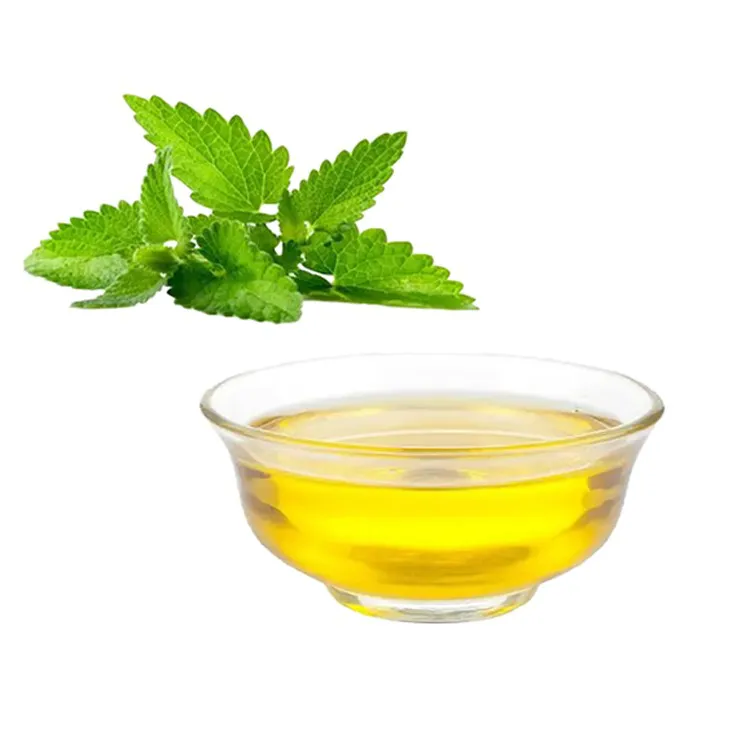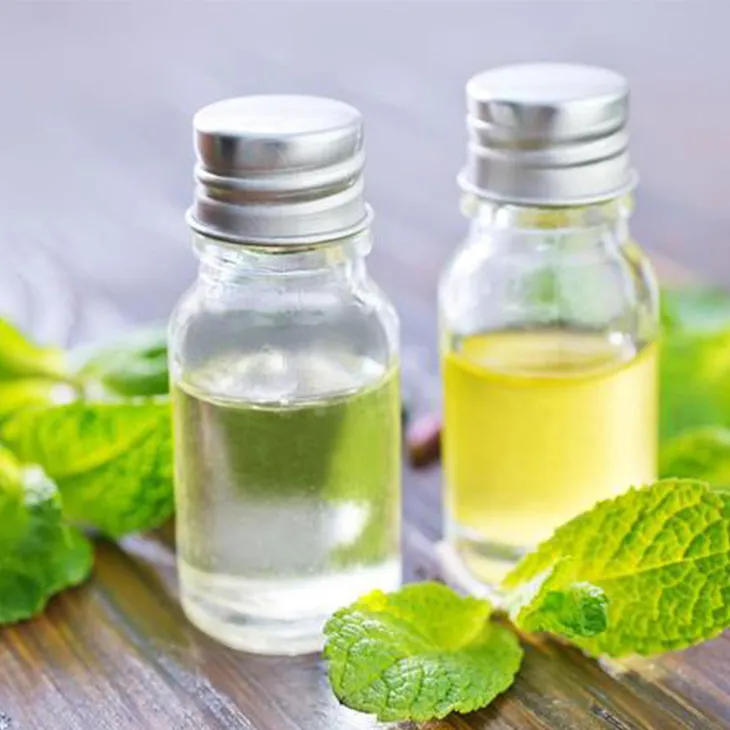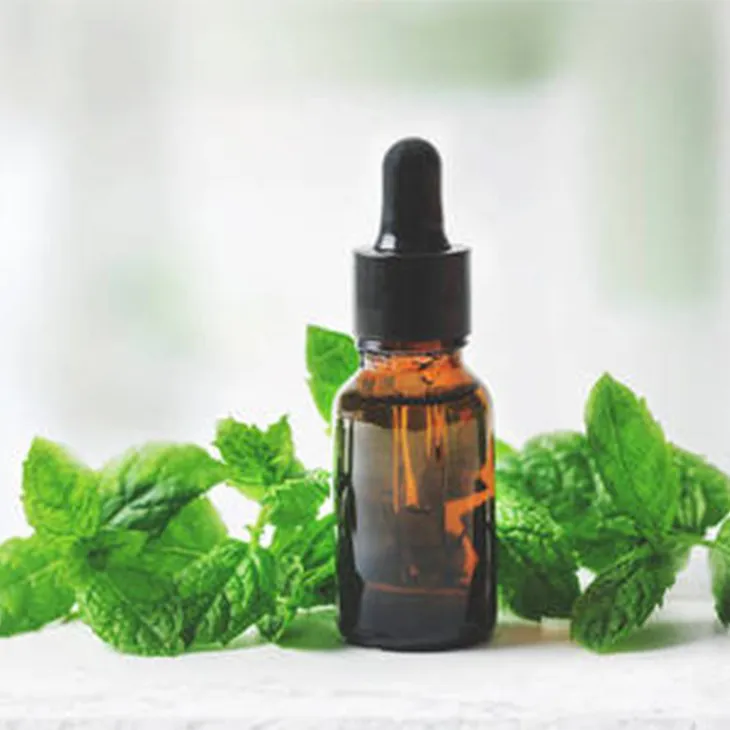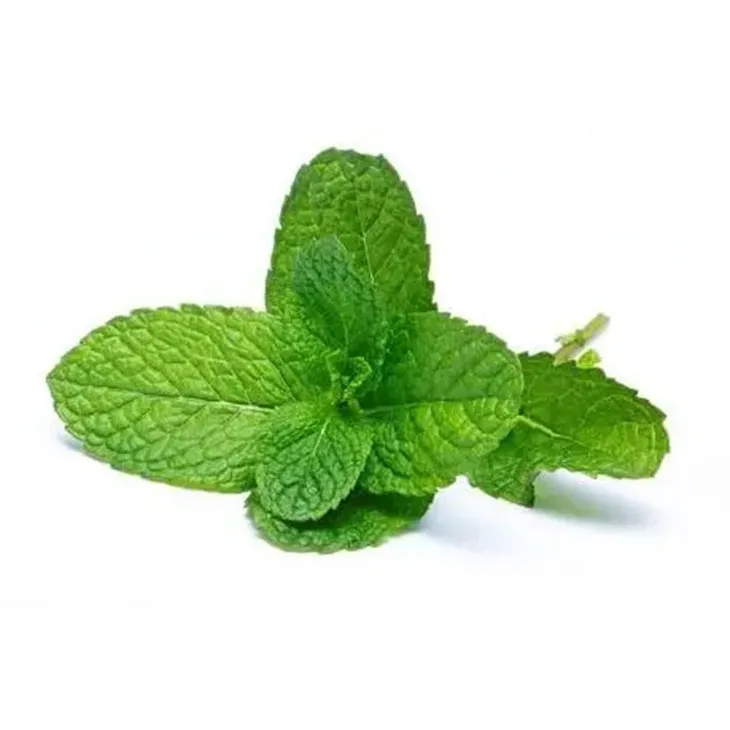- 0086-571-85302990
- sales@greenskybio.com
Peppermint oil is the hero ingredient your skin needs without you knowing it.
2024-11-12

Introduction to Peppermint Oil
Peppermint Oil is an essential oil that is derived from the peppermint plant, Mentha piperita. It has a long history of use in traditional medicine for various ailments. However, its benefits for the skin are often overlooked or underestimated.

Anti - Inflammatory Properties
1. How it works on a cellular level
Peppermint Oil contains menthol, which has anti - inflammatory effects. On a cellular level, menthol can interact with the cell membranes and modulate the release of inflammatory mediators. For example, it can inhibit the production of cytokines such as interleukin - 1β (IL - 1β) and tumor necrosis factor - α (TNF - α). These cytokines are key players in the inflammatory response and are often over - produced in skin conditions such as acne, eczema, and psoriasis.
2. Benefits for common skin conditions
- Acne: Inflammation is a major factor in acne development. The anti - inflammatory properties of peppermint oil can help reduce the redness and swelling associated with acne lesions. It can also target the bacteria Propionibacterium acnes, which is involved in acne pathogenesis, as some components of peppermint oil have antibacterial activity.
- Eczema: Eczema is characterized by itchy, inflamed skin. Peppermint oil can soothe the inflamed skin, reducing the itchiness and discomfort. It may also help to strengthen the skin barrier function, which is often compromised in eczema patients.
- Psoriasis: The chronic inflammation in psoriasis can be alleviated by peppermint oil. By reducing the inflammatory response, it may help to improve the appearance of psoriatic plaques and reduce the associated scaling.

Pore - Tightening Capabilities
1. Mechanism behind pore tightening
Peppermint oil can cause a mild constriction of the blood vessels near the skin surface. This leads to a tightening effect on the pores. Additionally, it can help to regulate the sebum production in the skin. Excessive sebum production can clog pores and lead to enlarged pores. By controlling sebum, peppermint oil can contribute to maintaining smaller and cleaner pores.
2. Importance for overall skin appearance
Tight pores are often associated with a more youthful and smooth skin appearance. By reducing the size of pores, peppermint oil can give the skin a refined and polished look. It can also help to prevent the accumulation of dirt and debris in the pores, which can lead to blackheads and whiteheads.

Other Skin Benefits
1. Cooling and refreshing effect
When applied to the skin, peppermint oil provides a cooling and refreshing sensation. This is due to the menthol content. This effect can be particularly beneficial during hot weather or after exposure to the sun. It can soothe the skin and provide a sense of relief.
2. Antioxidant activity
Peppermint oil contains antioxidants such as flavonoids and phenolic compounds. These antioxidants can protect the skin from free radical damage. Free radicals are unstable molecules that can cause oxidative stress in the skin, leading to premature aging, wrinkles, and dull skin. By neutralizing free radicals, peppermint oil can help to maintain the skin's health and vitality.

How to Use Peppermint Oil for Skin Care
1. Dilution is key
Peppermint oil is a concentrated essential oil and should always be diluted before applying to the skin. It can be diluted with a carrier oil such as jojoba oil, almond oil, or coconut oil. A general dilution ratio is 1 - 2 drops of peppermint oil per teaspoon of carrier oil.
2. Different application methods
- As a toner: Add a few drops of diluted peppermint oil to a cotton pad and gently swipe it across the face after cleansing. This can help to tighten pores and refresh the skin.
- In a face mask: Incorporate diluted peppermint oil into a homemade face mask, such as a clay mask or a honey mask. This can enhance the mask's benefits for the skin, especially in terms of reducing inflammation and tightening pores.
- Spot treatment: For acne or other skin blemishes, apply a small amount of diluted peppermint oil directly to the affected area. Leave it on for a short period and then rinse off.
Precautions and Considerations
1. Skin sensitivity
Some people may have sensitive skin that is more prone to irritation from peppermint oil. Before using it on a large area of the skin, it is advisable to do a patch test. Apply a small amount of diluted peppermint oil to a small area of skin, such as the inside of the wrist, and wait for 24 hours to check for any signs of redness, itching, or irritation.
2. Pregnancy and breastfeeding
Peppermint oil should be used with caution during pregnancy and breastfeeding. Although there is limited evidence on its safety in these situations, it is best to consult a healthcare provider before using it.
Conclusion
Peppermint oil is a remarkable ingredient with many potential benefits for skin health. Its anti - inflammatory and pore - tightening capabilities, along with other skin - friendly properties, make it a valuable addition to a skin care routine. However, it is important to use it correctly and be aware of any potential precautions. By understanding the power of peppermint oil, you can take better care of your skin and unlock its hidden potential.
FAQ:
What are the anti - inflammatory benefits of peppermint oil for the skin?
Peppermint oil contains menthol, which has natural anti - inflammatory properties. When applied to the skin, it can help soothe irritation, redness, and inflammation. It may be beneficial for various skin conditions such as acne, eczema, or psoriasis where inflammation is a factor. Menthol in peppermint oil can interact with the skin's receptors, reducing the sensation of inflammation and promoting a calmer complexion.
How does peppermint oil tighten pores?
Peppermint oil has astringent qualities. It can constrict the skin cells around the pores, making the pores appear smaller. The active components in peppermint oil interact with the skin's tissues, helping to firm up the area around the pores. This tightening effect can also contribute to a smoother skin texture and may help reduce the accumulation of dirt and oil in the pores, which is beneficial for preventing breakouts.
Is peppermint oil suitable for all skin types?
While peppermint oil has many potential benefits, it may not be suitable for all skin types. People with sensitive skin may experience irritation or allergic reactions. It is always recommended to do a patch test before using it on a larger area of the skin. For oily skin, it can be quite beneficial due to its pore - tightening and oil - controlling properties. However, those with dry skin should use it with caution as it may cause further dryness if not properly diluted or combined with moisturizing ingredients.
How should peppermint oil be used on the skin?
Peppermint oil should be diluted before being applied to the skin. A common dilution ratio is a few drops of peppermint oil in a carrier oil such as jojoba oil or almond oil. It can be gently massaged onto the skin in small amounts. Avoid using undiluted peppermint oil directly on the skin as it can be too strong and may cause irritation. It can also be added to homemade skincare products like masks or toners in a proper ratio for added skin - care benefits.
Can peppermint oil be used to treat acne?
Yes, it can potentially be used to treat acne. Its anti - inflammatory properties can help reduce the redness and swelling associated with acne. Also, its pore - tightening effect can prevent the clogging of pores which is a major cause of acne. However, it should be used carefully, especially for those with sensitive skin. Combining it with other acne - fighting ingredients like tea tree oil or salicylic acid in a proper formulation may enhance its effectiveness in treating acne.
Related literature
- The Benefits of Peppermint Oil in Skincare" by Skin Health Journal
- "Peppermint Oil: A Natural Remedy for Skin Inflammation" from Natural Skincare Research
- "Exploring the Pore - Tightening Effects of Peppermint Oil" in the Journal of Dermatological Sciences
- ▶ Hesperidin
- ▶ Citrus Bioflavonoids
- ▶ Plant Extract
- ▶ lycopene
- ▶ Diosmin
- ▶ Grape seed extract
- ▶ Sea buckthorn Juice Powder
- ▶ Fruit Juice Powder
- ▶ Hops Extract
- ▶ Artichoke Extract
- ▶ Mushroom extract
- ▶ Astaxanthin
- ▶ Green Tea Extract
- ▶ Curcumin
- ▶ Horse Chestnut Extract
- ▶ Other Product
- ▶ Boswellia Serrata Extract
- ▶ Resveratrol
- ▶ Marigold Extract
- ▶ Grape Leaf Extract
- ▶ New Product
- ▶ Aminolevulinic acid
- ▶ Cranberry Extract
- ▶ Red Yeast Rice
- ▶ Red Wine Extract
-
Calendula Extract
2024-11-12
-
Berberis aristata Extract
2024-11-12
-
Lemon Balm Extract
2024-11-12
-
Bayberry Extract
2024-11-12
-
Milk Thistle Extract
2024-11-12
-
Grapefruit Seed Extract Powder
2024-11-12
-
Polygonum Cuspidatum Extract
2024-11-12
-
Ginseng Root Extract
2024-11-12
-
Yam Extract
2024-11-12
-
Europen Bilberry Extract
2024-11-12





















